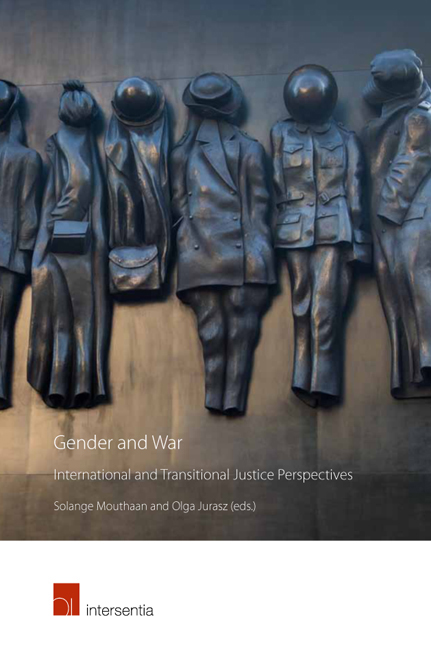Book contents
- Frontmatter
- Contents
- List of Cases
- List of Abbreviations
- List of Contributors
- Introduction
- PART I WOMEN'S INVOLVEMENT IN ARMED CONFLICT
- PART II MEN AND CHILDREN'S EXPERIENCES OF ARMED CONFLICT
- PART III GENDERED EXPERIENCES OF INTERNATIONAL CRIMINAL JUSTICE
- Gender, Enslavement and War Economies in Sierra Leone: A Case Study from the Special Court for Sierra Leone
- Male Victims and Female Perpetrators of Sexual Violence in Conflict
- Prosecuting Sexual and Gender-Based Crimes in the International Criminal Court: Inching Towards Gender Justice
- Reparations for Gendered Harms at the International Criminal Court: Towards Transformative and Gender-Just Reparations?
- PART IV GENDERED EXPERIENCES OF TRANSITIONAL JUSTICE
- PART V CONCLUSIONS
- About the Editors
Reparations for Gendered Harms at the International Criminal Court: Towards Transformative and Gender-Just Reparations?
from PART III - GENDERED EXPERIENCES OF INTERNATIONAL CRIMINAL JUSTICE
Published online by Cambridge University Press: 30 March 2019
- Frontmatter
- Contents
- List of Cases
- List of Abbreviations
- List of Contributors
- Introduction
- PART I WOMEN'S INVOLVEMENT IN ARMED CONFLICT
- PART II MEN AND CHILDREN'S EXPERIENCES OF ARMED CONFLICT
- PART III GENDERED EXPERIENCES OF INTERNATIONAL CRIMINAL JUSTICE
- Gender, Enslavement and War Economies in Sierra Leone: A Case Study from the Special Court for Sierra Leone
- Male Victims and Female Perpetrators of Sexual Violence in Conflict
- Prosecuting Sexual and Gender-Based Crimes in the International Criminal Court: Inching Towards Gender Justice
- Reparations for Gendered Harms at the International Criminal Court: Towards Transformative and Gender-Just Reparations?
- PART IV GENDERED EXPERIENCES OF TRANSITIONAL JUSTICE
- PART V CONCLUSIONS
- About the Editors
Summary
INTRODUCTION
Reparations for harms suffered by individuals in armed conflict are an essential part of the process of transition from conflict to peace and securing postconflict justice. Gender-sensitive reparations for women who are victims of international crimes and gross violations of human rights are an integral part of these processes and a critical element in addressing the long-term impact of armed conflict on women. Although the right to reparations is recognised in international law, the gender dimension of reparations for conflict-related harms has only fairly recently emerged as a topic of inquiry in international law. For instance, the issue of reparations for victims of sexual and genderbased violence (SGBV) suffered during World War II was not addressed at the International Military Tribunals at Nuremberg or in Tokyo.
In the past two decades, international law's efforts to address the long-term impact of armed conflict on women focused predominantly on attempting to close the impunity gap for conflict-related sexual violence (CRSV) through the jurisprudence of international criminal courts and tribunals. However, international criminal prosecutions of gender-based crimes have provided an important but somewhat limited avenue of redress for the victims. While international criminal tribunals such as the International Criminal Tribunal for the Former Yugoslavia (ICTY) and the International Criminal Tribunal for Rwanda (ICTR) delivered symbolic justice in many cases by holding the key perpetrators of gender-based crimes to account, they did not have the powers or jurisdiction to award reparations for the victims. The jurisdictional and functional distinction between civil and criminal courts meant that in order to obtain further redress for harm suffered, the victims needed to resort to national courts to claim compensation. This process brought inherent challenges, illustrated by the shortcomings in domestic legislation, different rules on the recognition of victims under domestic laws, and substantive delays in adjudication of such claims. In the meantime, women living in post-conflict societies had to face the challenges of day-to-day life with the consequences of physical, psychological and economic harms suffered as a result of international crimes and gross violations of human rights.
- Type
- Chapter
- Information
- Gender and WarInternational and Transitional Justice Perspectives, pp. 235 - 258Publisher: IntersentiaPrint publication year: 2019



